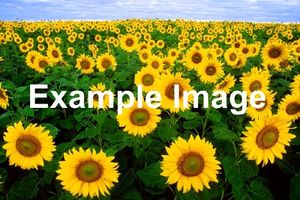Help:Images
| Important note: When you edit this page, you agree to release your contribution into the public domain. If you don't want this or can't do this because of license restrictions, please don't edit. This page is one of the Public Domain Help Pages, which can be freely copied into fresh wiki installations and/or distributed with MediaWiki software; see Help:Contents for an overview of all pages. |
This page explains the image syntax when editing the wiki. Before using images in your page, your wiki must have file uploads enabled (see the technical manual for details) and you have to upload a file.
Contents
[hide]Syntax
The full syntax for displaying an image is:
[[File:{filename}|{options}]]
Where options can be zero or more of the following, separated by pipes:
border,frame,thumb, orframeless: Controls how the image is formattedleft,right,center,none: Controls the alignment of the image within a textbaseline,sub,super,top,text-top,middle,bottom,text-bottom: Controls the vertical alignment of the image within a text{width}px: Resizes the image to the given width in pixels{width}x{height}px: Resizes the image to fit within the given width and height in pixels; it is possible to specify only the height by writingx{height}pxlink={destination}: Allows to link to an arbitrary title, URL or just nowhere (1.14+)link=: Will display an image without link, e.g.[[File:Name.jpg|link=]].- Note that
linkcannot be used in conjunction withthumb, as this is always meant to link to the larger version of the image.
alt={alternative text}: For changing the alternative text (alt="") of an image (1.14+)- Special cases:
-
page=1: Displays the specified page when showing a djvu file
-
The options can be given in any order. If the given options conflict each other, the latter is applied, except for the format options, where the options take the priority in the order of frame, thumb, and frameless and/or border. If a given option does not match any of the other possibilities, it is assumed to be the caption text. Caption text can contain wiki links or other formatting.
Format
The following table shows the effect of all available formats.
When the height of an image in thumbnail is bigger than its width and you find it too outstanding, you may try the option upright, which will try to adjust its size to more desirable size.
Note that by writing thumb={filename}, you can use a different image for the thumbnail.
Alignment
Note that when using frame or thumb, the default alignment will be right.
Vertical alignment
text text [[File:Example.jpg|20px]] text text [[File:Example.jpg|20px|baseline]] text text [[File:Example.jpg|20px|sub]] text text [[File:Example.jpg|20px|super]] text text [[File:Example.jpg|20px|text-top]] text text [[File:Example.jpg|20px|middle]] text text [[File:Example.jpg|20px|bottom]] text text [[File:Example.jpg|20px|text-bottom]]
results in (the text is underlined to show the result more clearly)
text text ![]() text text
text text ![]() text text
text text ![]() text text
text text ![]() text text
text text ![]() text text
text text ![]() text text
text text ![]() text text
text text ![]()
Size and Frame
Among different formats, the effect of the size parameter may be different, as shown below.
- When the format is not specified, or only
bordered, the size can be both reduced and enlarged. - A image with
framealways ignores the size specification. - The size of an image with
thumbandframelesscan be reduced, but can not be enlarged beyond the original size of the image.
For how it appears when its size is not specified, see Format section above.
| Format | Reduced | Enlarged |
|---|---|---|
| (not specified) |
[[File:Example.jpg|50px]] |
[[File:Example.jpg|500px]]
|
| border |
[[File:Example.jpg|border|50px]] |
[[File:Example.jpg|border|500px]]
|
| frame |
[[File:Example.jpg|frame|50px]] |
[[File:Example.jpg|frame|500px]]
|
| thumb |
[[File:Example.jpg|thumb|50px]] |
[[File:Example.jpg|thumb|500px]]
|
| frameless |
[[File:Example.jpg|frameless|50px]] |
[[File:Example.jpg|frameless|500px]] |
Gallery of images
It's easy to make a gallery of thumbnails only, not other images, with the <gallery> tag. The syntax is:
<gallery>
File:{filename}|{caption}
File:{filename}|{caption}
{...}
</gallery>
Note that the image code is not enclosed in brackets when enclosed in gallery tags.
Captions are optional, and may contain wiki links or other formatting.
for example:
<gallery>
File:Example.jpg|Item 1
File:Example.jpg|a link to [[Help:Contents]]
File:Example.jpg
File:Example.jpg
File:Example.jpg| ''italic caption''
File:Example.jpg|on page "{{PAGENAME}}"
</gallery>
is formatted as:
a link to Help:Contents
Parameters
The gallery tag itself takes several additional parameters:
<gallery {parameters}>
{images}
</gallery>
-
caption={caption}: sets a caption on the gallery. -
widths={width}px: sets the widths of the images. -
heights={heights}px: sets the (max) heights of the images. -
perrow={integer}: sets the number of images per row.
Link to description page
If you put a colon (:) before File:, the image will not be embedded and the link will lead to the description page of the file.
[[:File:Example.jpg]] [[:File:Example.jpg|Sunflowers]]
results in
Link directly to file
You can use the pseudo-namespace “Media” to link directly to a file, bypassing the description page.
[[Media:Example.jpg]] [[Media:Example.jpg|Sunflowers]]
results in
You can also use:
[[Special:FilePath/Example.jpg]]
which can be used to link to a potential file, even if it doesn't exist. You can also use:
{{FILEPATH:Example.jpg}}
which generates an external URL to the file inline: https://wiki.nsdgames.com/w/images/a/a9/Example.jpg
Files at other websites
You can link to an external file using the same syntax used for linking to an external web page.
[http://url.for/some/image.png]
Or with different text:
[http://url.for/some/image.png link text here]
If it is enabled on your wiki (see Manual:$wgAllowExternalImages), you can also embed external images. To do that, simply insert the image's url:
http://url.for/some/image.png


